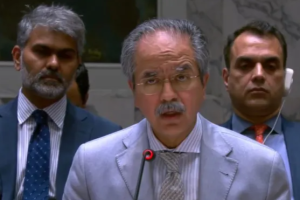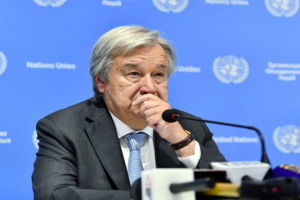According to a new study, More than 50 million people in India do not have access to effective handwashing, putting them at a high risk of acquiring and transmitting the novel coronavirus. The concerned study have been published in the journal Environmental Health Perspectives, more than 50 per cent of the people in sub-Saharan Africa and Oceania lacked access to effective handwashing.
A Researchers from the Institute for Health Metrics and Evaluation (IHME) at the University of Washington in the United State found that without access to soap and clean water, over 2 billion people in low- and middle-income nations – a quarter of the world’s population – have a greater likelihood of transmitting the coronavirus than those in wealthy countries, it said.
Meanwhile, Michael Brauer, a professor at IHME remarked that, “Handwashing is one of the key measures to prevent COVID-19 transmission, yet it is distressing that access is unavailable in many countries that also have limited health care capacity”, The study also found that in 46 countries, more than half of people lacked access to soap and clean water.
Wijesekera, UNICEF Director of Programmes remarked that, “Handwashing with soap is one of the cheapest, most effective things you can do to protect yourself and others against coronavirus, as well as many other infectious diseases. Yet for billions, even this most basic of steps is simply out of reach”. “It is far from a magic bullet. But it is important to make sure people know what steps they should take to keep themselves and their families safe”.
Read Also, COVID-19 lockdowns significantly impacting global air quality
In India, Pakistan, China, Bangladesh, Nigeria, Ethiopia, Democratic Republic of the Congo, and Indonesia, more than 50 million persons in each country were estimated to be without handwashing access, according to the study. “Temporary fixes, such as hand sanitizer or water trucks, are just that — temporary fixes,” Micheal Brauer asserted.
Brauer, “But implementing long-term solutions is needed to protect against COVID and the more than 700,000 deaths each year due to poor handwashing access”. Brauer noted that even with 25 per cent of the world’s population lacking access to effective handwashing facilities, there have been “substantial improvements in many countries” between 1990 and 2019.
Read Also, Vitamin D levels appear to play role in COVID-19 mortality rates
Those countries include Saudi Arabia, Morocco, Nepal, and Tanzania, which have improved their nations” sanitation, the researchers remarked. However, The study does not estimate access to handwashing facilities in non-household settings such as schools, workplaces, health care facilities, and other public locations such as markets, PTI news agency attributed.
As per the researchers, Earlier this month, the World Health Organization predicted 190,000 people in Africa could die of COVID-19 in the first year of the pandemic, and that upward of 44 million of the continent’s 1.3 billion people could be infected with the coronavirus, the researchers remarked.
As the pandemic continues its spread, UNICEF is reminding the public of the importance of handwashing as a key prevention measure against COVID-19 and urging renewed efforts to provide access to this most basic of public health interventions around the globe.
Despite all of this, Handwashing with soap, when done correctly, is critical in the fight against the novel coronavirus disease (COVID-19), but millions of people have no ready access to a place to wash their hands, UNICEF attributed. According to the latest data of UNICEF; In total, only 3 out of 5 people worldwide have basic handwashing facilities.
Author: Trilok Singh, Currently Studies Masters in Mass Communication & Journalism at ISOMES, News 24 Campus. MA in Political Science, Kirori Mal College, University of Delhi.

























Add Comment